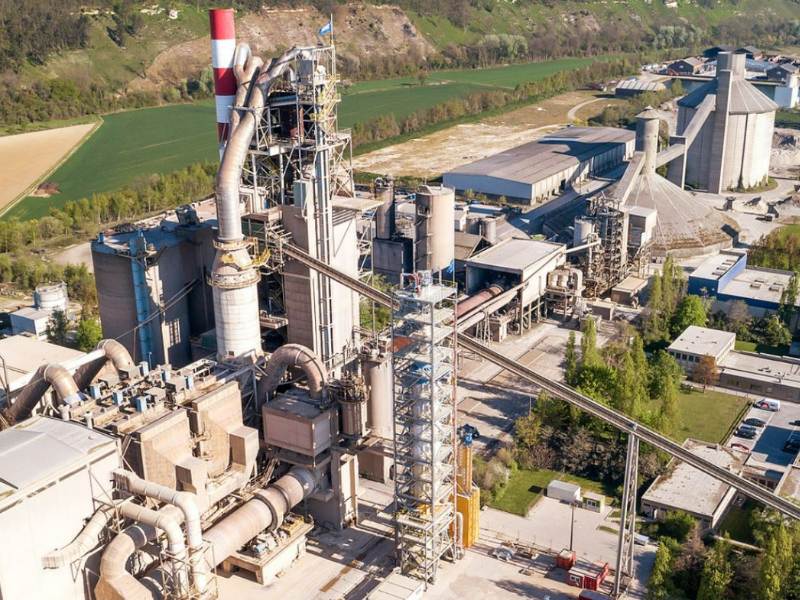A European Union funded consortium has released the final project report that the entire constriction sector is waiting for – official confirmation that the technology developed by Australian company Calix offers the cheapest way yet discovered to de-carbonise the cement industry.
Cement, along with steel, are seen as the most vital yet intractably polluting materials and represent serious roadblocks to removing carbon emissions from our industrial future.
With hydrogen making inroads as a reductant for steel, Calix’s revolutionary new kiln technology has emerged as a winner in the report assessing the EU funded LEILAC-1 pilot plant at HeidelbergCement’s CBR Lixhe facility (pictured) in Belgium.

Reported by the LEILAC Consortium including many of the leading cement and lime companies globally, the report maps out a full commercialisation and deployment roadmap with full techno-economic modelling.
Its conclusions:
- For a full scale, developed and retrofitted LEILAC plant, CO2 capture costs including capex and opex for cement is estimated to be in the range of 14 Euro to 24 Euro per tonne of CO2 – the lowest reported of any technology
- And for full-chain CO2 mitigation projects, total costs may be in the region of 39 Euro to 80 Euro per tonne of CO2 avoided.
This compares to current EU allowances recently traded at 62 Euro per tonne of CO2.
Calix’s technology involves heating the kiln from the outside, rather than combustion taking place inside the cement kiln, including allowing for renewable electricity from wind and solar which is the cheapest form of new power generation.
The beauty of the process is that inside the kiln carbon dioxide bubbles out of the rock and is used in carbon reduction or captured ready for conversion into other materials or to be piped away for storage.
A large scale LEILAC 2 installation is already slated for construction at Hannover in Germany.
The bottom line of the report is that the Calix technology can enable net zero production of lime and cement at low cost, assuming the world continues to strive for net zero emissions.
Locally Australian materials company Adbri is pushing forward with a separate pilot investigating Calix-technology zero-emission lime production – lime an important industrial chemical.
Yet we have a government in Canberra that is not only not doing more than the bare minimum to support industrial technologies such as Calix’s, but has to be dragged kicking and screaming towards even uttering the words ‘net-zero’.
Nationally we may be an international disgrace, but here at least Australian industry is taking the lead.
This story was originally published by @AuManufacturing. You can subscribe to the @AuManufacturing newsletter here.
Do you know more? Contact James Riley via Email.
